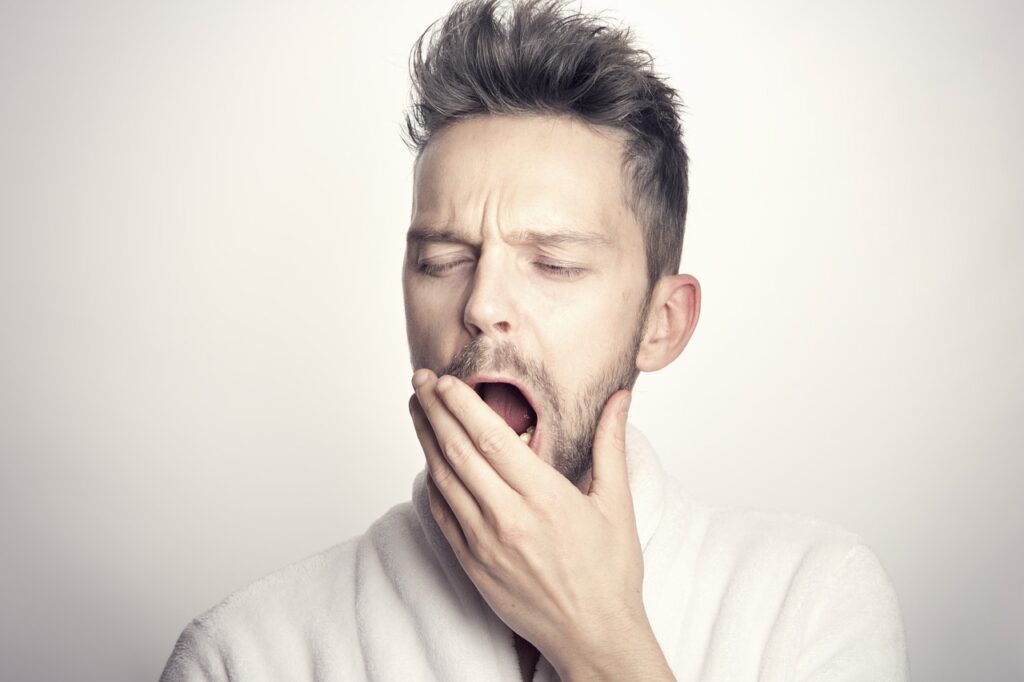If you can’t sleep, no matter how tired you feel or how much you crave rest, you’re not alone. Millions of people lie awake at night, tossing and turning, wondering why their mind won’t shut off or their body won’t relax. If you’re a working professional overwhelmed with stress, a parent struggling with nighttime routines, or someone dealing with physical discomfort, you know how frustrating it is when your body refuses to cooperate at bedtime.
In this post, we’ll explore the most common reasons why you can’t sleep. From anxiety and poor sleep habits to hormonal shifts and medical conditions, we’ll break down each cause so you can understand what might be keeping you awake and what you can do about it. Let’s dive into the top culprits behind insomnia and sleepless nights.
1. Stress and Anxiety
One of the most common reasons you can’t sleep is stress. Whether it’s work deadlines, financial worries, or personal problems, stress activates your body’s “fight or flight” response. When your brain perceives a threat, it becomes alert, making it nearly impossible to relax.
Key Things:
- Racing thoughts
- Physical tension (tight muscles, rapid heartbeat)
- Trouble falling or staying asleep
- Stress can sometimes motivate action or focus
- Chronic stress leads to long-term sleep disruption
- May develop into generalized anxiety or depression

Tip: Create a relaxing nighttime routine – journaling, deep breathing, or listening to calming music can help signal your body it’s time to rest.
2. Poor Sleep Habits (a.k.a. Sleep Hygiene)
Sometimes, the reason you can’t sleep is your sleep routine or lack of one. Watching TV or scrolling on your phone right before bed, inconsistent sleep times, or even drinking caffeine late in the day can all sabotage your ability to fall asleep.
Avoid:
- Irregular bedtime schedule
- Bright screens before bed
- Consuming stimulants late in the day
Tip: Try going to bed and waking up at the same time every day – even on weekends. Keep screens out of the bedroom and limit caffeine after 2 p.m.
3. Blue Light Exposure
Blue light from screens (phones, tablets, TVs) tricks your brain into thinking it’s still daytime. This can suppress melatonin production, the hormone that helps you fall asleep. If you can’t sleep and you’re glued to screens at night, this could be a big reason why.
Key Things:
- Avoid screen time late at night
- Dim the lights in your house
Tip: Use blue light filters or “night mode” on your devices and avoid screens at least an hour before bedtime.

4. Hormonal Imbalances
Hormones play a vital role in sleep regulation. If you can’t sleep, it might be due to changes in hormones like cortisol, estrogen, progesterone, or melatonin. This is especially common in women during PMS, pregnancy, or menopause, and in anyone dealing with thyroid or adrenal issues.
Key Symptoms:
- Night sweats or hot flashes
- Restlessness during hormone shifts
- Waking up frequently
Keep in Mind:
- Harder to detect without medical testing
- Sleep disruption can become chronic
Tip: Talk to a healthcare provider about checking your hormone levels. Natural supplements or hormone therapy might be helpful in some cases.
5. Medical Conditions and Chronic Pain
If you can’t sleep, consider whether physical discomfort is playing a role. Conditions like arthritis, fibromyalgia, acid reflux, restless leg syndrome, and sleep apnea can make restful sleep difficult or even impossible. I had this problem, when I had a carpal tunnel syndrome in both of my hands. I would try to sleep for 9-10 hours but because of the constant pain I would wake up every hours. I didn’t get any rest whatsoever. After I had an operation, I would sleep for 6-7 hours and I would feel rested like never before. It felt amazing. Do not ignore your medical conditions that do no let you get a restful sleep.
Symptoms:
- Pain or discomfort at night
- Frequent awakenings
- Daytime fatigue despite long hours in bed
Tip: Keep a sleep journal to track symptoms and share it with your doctor. This can help pinpoint patterns and guide treatment.

6. Diet and Stimulants
Your diet can have a huge impact on your sleep. Eating a heavy meal too close to bedtime, drinking caffeine late in the day, or consuming too much sugar can all be reasons why you can’t sleep.
Symptoms:
- Digestive discomfort
- Restlessness or “wired” feeling
- Waking up hungry or thirsty
Tip: Avoid eating large meals 2–3 hours before bed and cut down on caffeine, especially in the afternoon.
7. Irregular Sleep Schedule (Shift Work or Jet Lag)
If your job requires late nights or rotating shifts, or if you’ve recently traveled across time zones – you may find that you can’t sleep even when you’re exhausted. Your internal body clock gets thrown off, making it hard to fall asleep at the “right” time.
Symptoms:
- Sleep timing mismatch
- Fatigue during the day, alertness at night
- Difficulty adjusting
Remember:
- Increased risk of chronic insomnia
- Can affect mental and physical health long-term
Tip: Try melatonin supplements and light therapy to reset your circadian rhythm. Stick to a consistent schedule when possible.

FAQ. Can’t Sleep? You’re Not Alone.
Q1: What should I do if I can’t sleep in the middle of the night?
A: If you’re awake for more than 20 minutes, get out of bed. Do something relaxing in dim light – read a book or stretch. Avoid looking at your phone or watching TV. Once you feel sleepy, go back to bed.
Q2: Is insomnia always caused by stress?
A: No, while stress is a major contributor, other factors like poor sleep hygiene, medical issues, diet, and hormonal changes can all affect sleep. Identifying the root cause is key.
Q3: How do I know if I have insomnia or just a few bad nights?
A: If you can’t sleep at least three nights a week for more than three months, and it affects your daytime functioning, you may have chronic insomnia. Speak with a healthcare provider for an evaluation.
Why You Can’t Sleep – It’s More Common Than You Think
Struggling with sleep is incredibly common, but it doesn’t have to be your new normal. If you can’t sleep, it’s important to identify what’s causing the issue. Whether it’s stress, bad habits, medical problems, or hormone shifts, understanding the root of your insomnia is the first step toward better rest.
Here’s a quick recap of common causes:
- Stress and anxiety
- Poor sleep habits
- Blue light exposure
- Hormonal imbalances
- Medical conditions or chronic pain
- Diet and stimulants
- Irregular sleep schedule

By paying attention to these factors and making a few adjustments, you can get back on track. Better sleep means better health, mood, and productivity. So take your sleep seriously.
What makes you sleep better? Is there anything we have missed? Leave a comment below.







